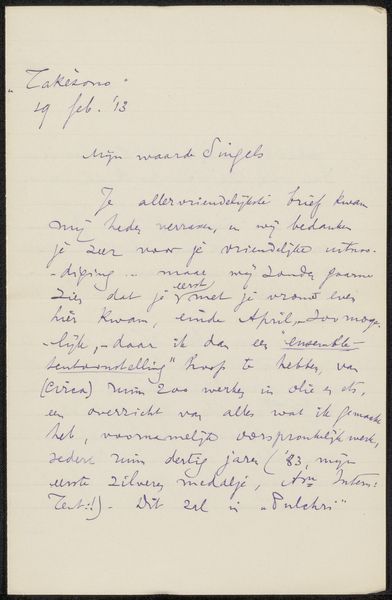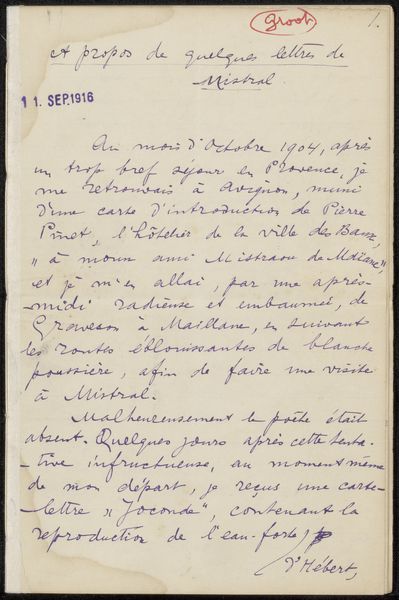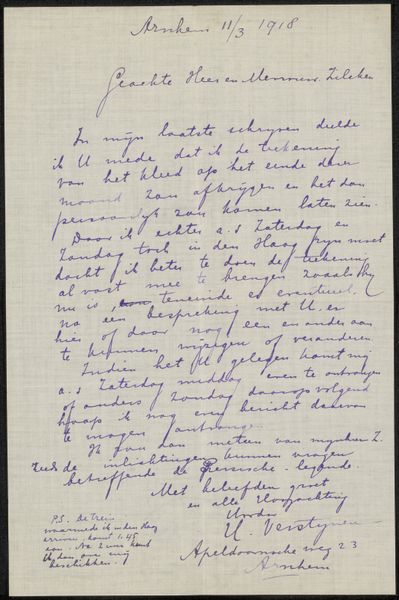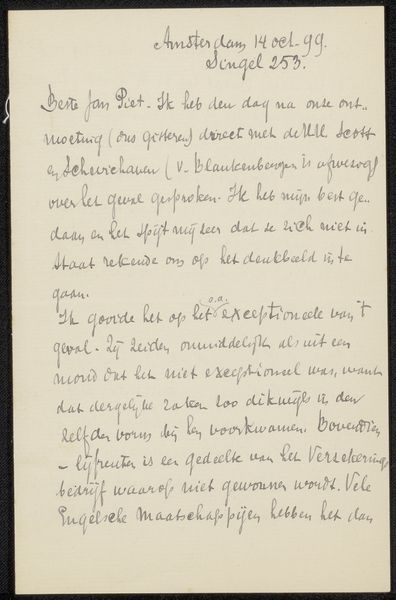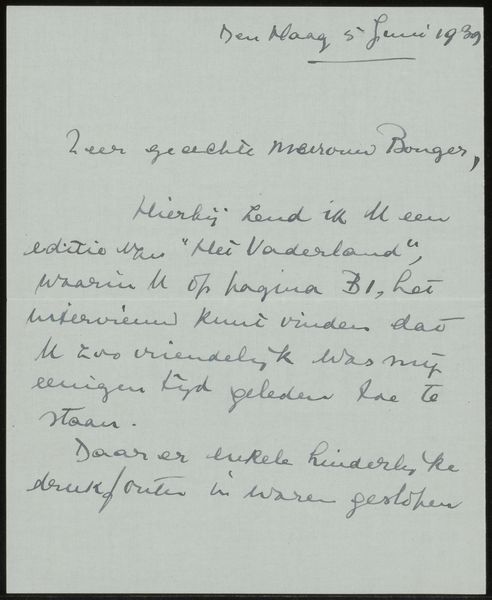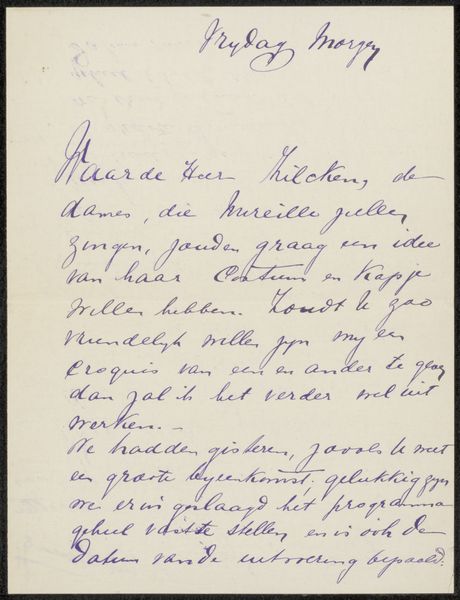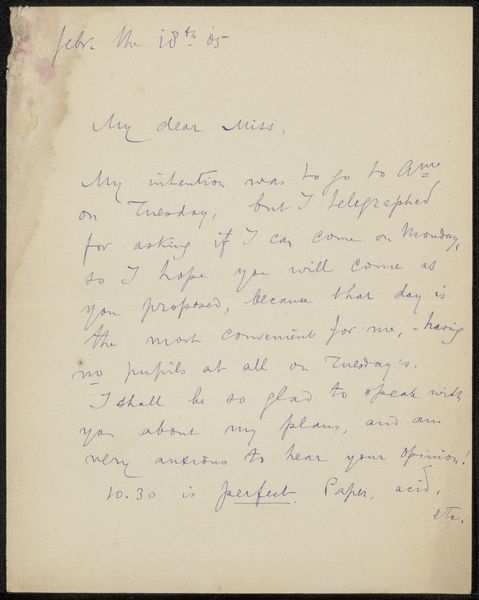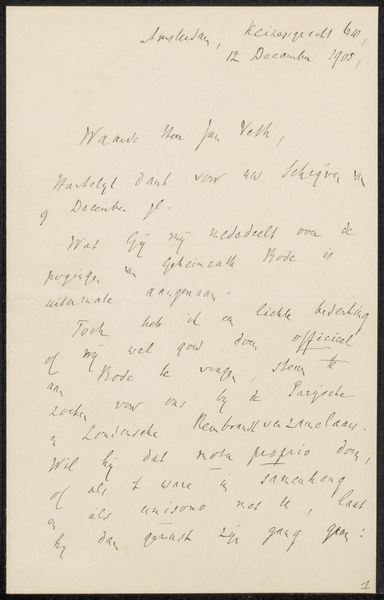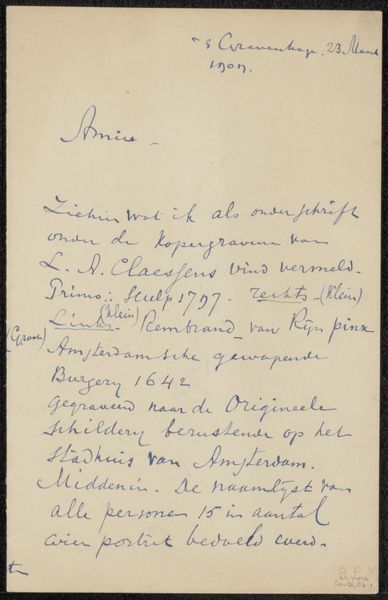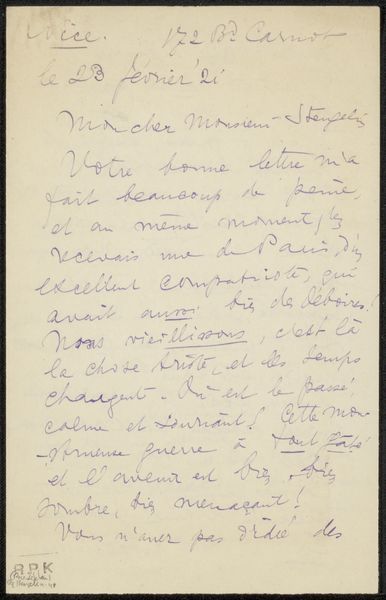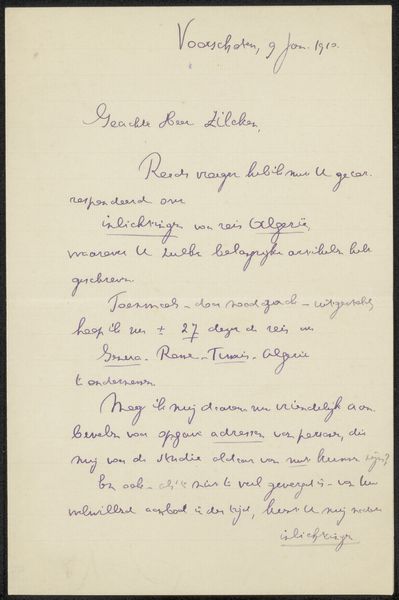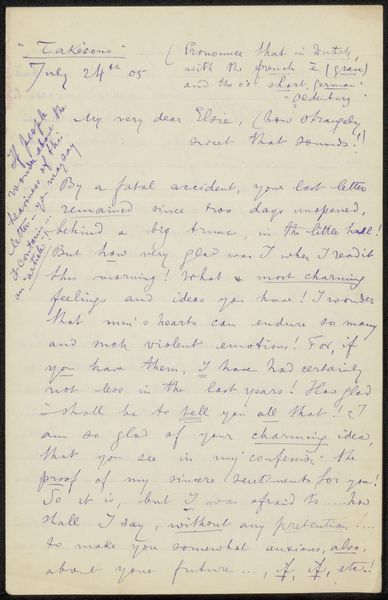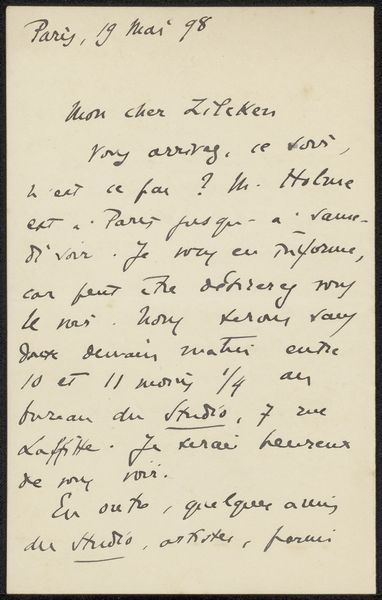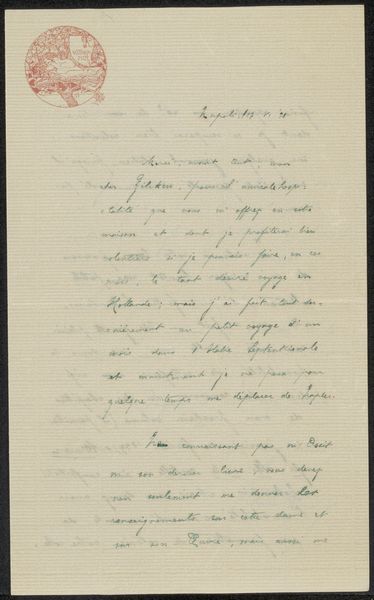
drawing, paper, ink
#
portrait
#
drawing
#
script typography
#
hand-lettering
#
hand drawn type
#
feminine typography
#
hand lettering
#
paper
#
personal sketchbook
#
ink
#
hand-drawn typeface
#
fading type
#
handwritten font
#
calligraphy
#
small lettering
Copyright: Rijks Museum: Open Domain
Editor: So, this piece is a letter titled "Brief aan Philip Zilcken" by Anna de Savornin Lohman, created before 1913. It's ink on paper. What immediately strikes me is the beautiful, almost whimsical, handwriting. What do you see in this work? Curator: This letter offers a fascinating glimpse into the social world of early 20th-century artists and intellectuals. Lohman, writing to Philip Zilcken, likely discusses an upcoming visit. Consider the context: handwriting was a primary mode of communication. The act of writing itself was performative, a conscious presentation of self. Do you see any indications of the class or social status of the writer in the way the letter is composed? Editor: I hadn't really thought about that. I guess the elegant, cursive script and the formal address at the top do suggest a certain level of education and social standing. It feels more intentional than a casual note. Curator: Precisely. The address "Den Haag Zeestraat 46" also speaks volumes about Lohman's location in a specific social and cultural milieu. Knowing this, how does this inform your understanding of its artistic purpose? Editor: That it shows the human and class side to this art community that is now gone in this form, yet remains with us. The act of preserving this "simple" letter has elevated its presence in art and art history, providing insights beyond its everyday purpose. It’s more than just correspondence; it's a document of a particular time and social network. Curator: Exactly. The content of the letter matters, but the act of its preservation elevates the purpose. And I feel its real role today resides less in the immediate recipient, and rather serves us now. Editor: That makes a lot of sense. I'll definitely think about handwriting and social context differently from now on.
Comments
No comments
Be the first to comment and join the conversation on the ultimate creative platform.
